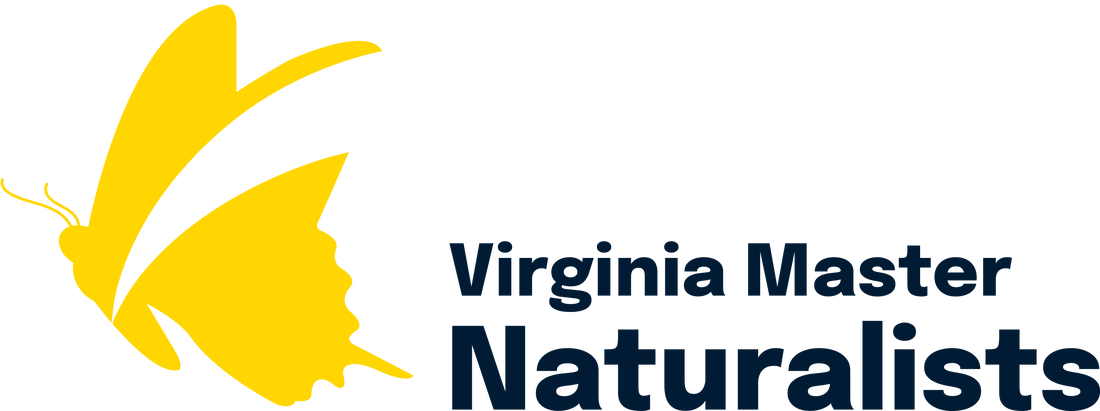By Ashton Stinson, Program Director, Blue Ridge PRISM
The Blue Ridge PRISM, in conjunction with the USDA Natural Resources Conservation Service (NRCS), hereby announces the availability of Regional Conservation Partnership Program (RCPP) funding to assist landowners with the removal of invasive plants. The dollar amount available to an eligible landowner depends on many factors but could be as high as $22,000 spread over a three-year period.
Who is eligible?
Owners of nonindustrial private forestland and agricultural producers are eligible to apply for this program. The land in question must be in the 10-county area served by the Blue Ridge PRISM (Albemarle, Augusta, Clarke, Greene, Madison, Nelson, Page, Rappahannock, Rockingham, and Warren counties) and be managed by the applicant. Your local NRCS District Conservationist (see below) can walk you through other eligibility criteria that rarely apply and answer any questions you may have.
Other program details
Each landowner accepted into the RCPP program will sign a 3-year Environmental Quality Incentives Program (EQIP) contract with the NRCS. A $643,915 pool of funds has been reserved in the RCPP program solely for work on invasive plants within this 10-county area.
Each application must include treating at least one of the following 10 high priority invasive species: ailanthus (tree-of-heaven), autumn olive, Chinese privet, garlic mustard, Japanese honeysuckle, Japanese stiltgrass, kudzu, mile-a-minute vine, multiflora rose, or oriental bittersweet. Other species on the Invasive Plant Species List published by the VA Department of Conservation and Recreation’s Natural Heritage Division may also be included in the application.
How and when to apply
The current expectation is that the program will be open for applications sometime in October or November 2016. The first contracts are expected to be signed with landowners in the December to February timeframe. However, there are important steps that you can take now in order to submit an application.
First you must establish farm records with USDA’s Farm Service Agency and verify compliance with the provisions of the Agricultural Act of 2014 or “Farm Bill”. Then you will work with your local NRCS District Conservationist and possibly your local Virginia Department of Forestry Area Forester to develop a conservation plan that outlines the specific species that will be treated and where the treatment areas are on your property. If you want to have your contract signed over the winter in order to be ready to treat invasive plants when they first emerge in the Spring, then taking these steps now is important. In many cases it will be helpful to develop the conservation plan before the plants go dormant later this year. Your NRCS District Conservationist will walk you through all the required steps.
Where can you get more information?
The Blue Ridge PRISM, in conjunction with the USDA Natural Resources Conservation Service (NRCS), hereby announces the availability of Regional Conservation Partnership Program (RCPP) funding to assist landowners with the removal of invasive plants. The dollar amount available to an eligible landowner depends on many factors but could be as high as $22,000 spread over a three-year period.
Who is eligible?
Owners of nonindustrial private forestland and agricultural producers are eligible to apply for this program. The land in question must be in the 10-county area served by the Blue Ridge PRISM (Albemarle, Augusta, Clarke, Greene, Madison, Nelson, Page, Rappahannock, Rockingham, and Warren counties) and be managed by the applicant. Your local NRCS District Conservationist (see below) can walk you through other eligibility criteria that rarely apply and answer any questions you may have.
Other program details
Each landowner accepted into the RCPP program will sign a 3-year Environmental Quality Incentives Program (EQIP) contract with the NRCS. A $643,915 pool of funds has been reserved in the RCPP program solely for work on invasive plants within this 10-county area.
Each application must include treating at least one of the following 10 high priority invasive species: ailanthus (tree-of-heaven), autumn olive, Chinese privet, garlic mustard, Japanese honeysuckle, Japanese stiltgrass, kudzu, mile-a-minute vine, multiflora rose, or oriental bittersweet. Other species on the Invasive Plant Species List published by the VA Department of Conservation and Recreation’s Natural Heritage Division may also be included in the application.
How and when to apply
The current expectation is that the program will be open for applications sometime in October or November 2016. The first contracts are expected to be signed with landowners in the December to February timeframe. However, there are important steps that you can take now in order to submit an application.
First you must establish farm records with USDA’s Farm Service Agency and verify compliance with the provisions of the Agricultural Act of 2014 or “Farm Bill”. Then you will work with your local NRCS District Conservationist and possibly your local Virginia Department of Forestry Area Forester to develop a conservation plan that outlines the specific species that will be treated and where the treatment areas are on your property. If you want to have your contract signed over the winter in order to be ready to treat invasive plants when they first emerge in the Spring, then taking these steps now is important. In many cases it will be helpful to develop the conservation plan before the plants go dormant later this year. Your NRCS District Conservationist will walk you through all the required steps.
Where can you get more information?
Nelson, Albemarle |
Kory Kirkland |
Louisa Service Center |
540-967-0091 x3204 |
|
Augusta |
Charlie Ivans |
Verona Service Center |
540-248-6218 x122 |
|
Greene, Madison, Rappahannock |
Rex Rexrode |
Culpeper Service Center |
540-825-4200 x101 |
|
Rockingham, Page |
Cory Guilliams |
Harrisonburg Service Center |
540-433-2901 x118 |
|
Warren, Clarke |
Jeff Barr |
Strasburg Service Center |
540-465-2424 x108 |
Contractor opportunity
As part of this program the PRISM and the NRCS will make available to landowners a partial list of potential contractors who provide services related to invasive plant removal and restoration of native species. If you are qualified to do this work, have relevant experience and references, are properly certified, and would like to be added to the list, please forward your information to [email protected]. The PRISM will be offering a contractor training session on identifying and treating invasive plants between now and the end of the year.
The Blue Ridge PRISM
The Blue Ridge PRISM is a collaboration of private landowners, conservation organizations, federal agencies, state agencies, local government entities, and companies involved with treating invasive plants. Our mission is to reduce the impact of nonnative invasive plants in our 2.8 million acre, 10-county region. The Blue Ridge PRISM is a project of the Shenandoah National Park Trust, which is a 501c3 nonprofit and the fiscal sponsor of the Blue Ridge PRISM.
Membership is free and participation is open to the public. We invite you to attend our quarterly meeting on November 2, 2016 at Ivy Creek Natural Area in Charlottesville to ask questions and gain a better understanding the RCPP funding opportunity. For more information, please visit www.blueridgeprism.org. To be added to our mailing list or to request additional information, please email [email protected].
As part of this program the PRISM and the NRCS will make available to landowners a partial list of potential contractors who provide services related to invasive plant removal and restoration of native species. If you are qualified to do this work, have relevant experience and references, are properly certified, and would like to be added to the list, please forward your information to [email protected]. The PRISM will be offering a contractor training session on identifying and treating invasive plants between now and the end of the year.
The Blue Ridge PRISM
The Blue Ridge PRISM is a collaboration of private landowners, conservation organizations, federal agencies, state agencies, local government entities, and companies involved with treating invasive plants. Our mission is to reduce the impact of nonnative invasive plants in our 2.8 million acre, 10-county region. The Blue Ridge PRISM is a project of the Shenandoah National Park Trust, which is a 501c3 nonprofit and the fiscal sponsor of the Blue Ridge PRISM.
Membership is free and participation is open to the public. We invite you to attend our quarterly meeting on November 2, 2016 at Ivy Creek Natural Area in Charlottesville to ask questions and gain a better understanding the RCPP funding opportunity. For more information, please visit www.blueridgeprism.org. To be added to our mailing list or to request additional information, please email [email protected].



 RSS Feed
RSS Feed